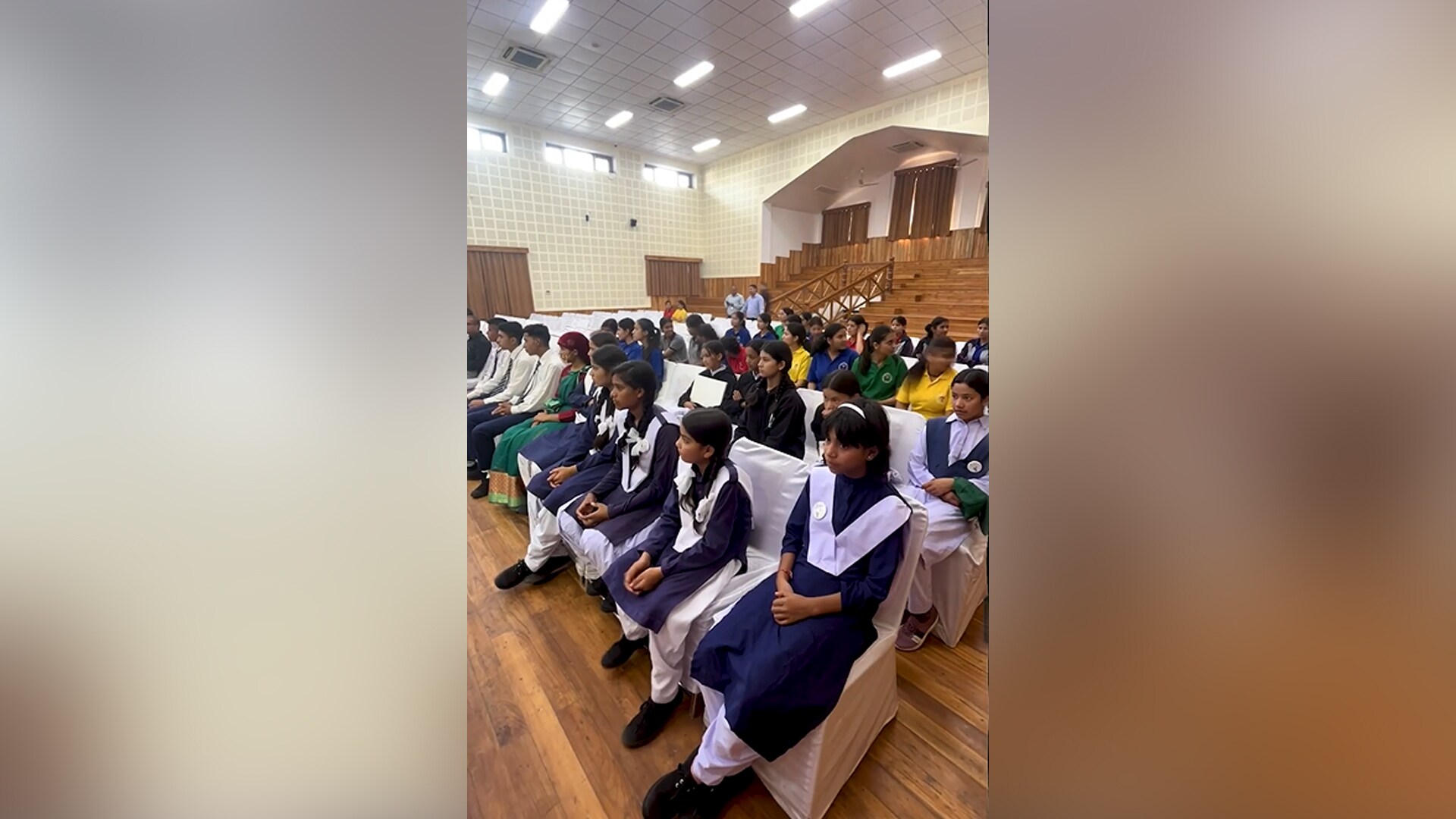

- Home/
- Top Stories/
- When women do better economies do better: IMF chief Christine Lagarde
When women do better economies do better: IMF chief Christine Lagarde
Christine Lagarde, managing director of International Monetary Fund, spoke to NDTV's Vikram Chandra on the sidelines of the annual WEF meet in Davos, Switzerland, about various issues that India faces as a nation and as an economy.
Here's full transcript of the interview:
VIKRAM CHANDRA: Well it gives us great pleasure to welcome the managing director of IMF, Christine Lagarde. It's always a pleasure talking to you. Before I start talking about the world economy, there have been very emotional reaction in India to the comments that you have made here at WEF while greeting the entire WEF, you spoke about "the daughter of India...the victim of the gang-rape". Her fate obviously has really touched and moved a lot of people in India. What made you refer to her?
CHRISTINE LAGARDE: My own emotion, the sense that she cannot be forgotten ever and I am privileged to have a voice and to be listened to. I want her problem and the problem of women around the world to be on the top of the agenda of those who make policy decisions. It's so important that women are protected that they have a voice and that they are included in the society and not excluded and that they are respected. So I wanted to give that moment to her and to Malala from Pakistan.
VIKRAM CHANDRA: So that's why you said "I pledge this moment to the two of them"?
CHRISTINE LAGARDE: Yes, I was given a privilege of 15 minutes of address at the opening of the World Economic Forum. I wanted to dedicate that moment to two of them- the daughter of India and the daughter of Pakistan.
VIKRAM CHANDRA: And the issue of women safety and women rights, which in these two cases, illustrates is something that you think you can use your influence to try and really put on the agenda here at Davos and elsewhere?
CHRISTINE LAGARDE: Not only I can but I think I should. But I must and I will. It's for humanity, emotional, personal reasons and also for economic reasons because if economy is open to women more than they do in most companies of the world, if equality, if respect, if inclusiveness are in the agenda then economies will fare better. In fact, it's now a proven fact- when women do better economies do better. What are we all looking at the moment is improving the state of the world, improving growth, creating jobs, making sure that our planet is going to be sustainable with growth and with inclusion. So I think that pursuing the course of the women and making sure that they are included, respected, given the choice and be educated is valuable because not just for women but for humanity at large...
VIKRAM CHANDRA: Of course, we have seen this big upsurge in the emotion in India but this is not really a problem restricted to India. Look at the number of rapes and attacks that are taking place even in the US, in Europe. it's across the planet...
CHRISTINE LAGARDE: Violence against women is very well shared around the world and it has to stop.
VIKRAM CHANDRA: Let me just shift focus to the world economy. I remember talking to you a year ago and everything looked as if it is dark and loony. Have things improved significantly or is it too early to say that?
CHRISTINE LAGARDE: Things have improved, I won't say significantly (though). Things are improved and there is a little bit of recovery in the air, it shows in the numbers. Not as great as we would expect but we would expect. You know, the global economy is expected to grow at 3.5 as opposed to 3.2 last year; advanced economy is lagging behind. Emerging markets and low income companies driving growth- that's the picture we have at the moment. What is more interesting is how 2013 is either going to make or break. There have been a lot of changes and lot of good intentions, a lot of decisions made in the Eurozone, in the US and Japan, to a certain extent, and (whether) that will deliver result or not, that will depend on the governance.
VIKRAM CHANDRA: So both in Europe and also in America, where we have seen this grand standing over 'fiscal cliff', people are quite shocked. Has the solution been found or both Europe and the US are essentially kicking the can along the road hoping tomorrow things will get better?
CHRISTINE LAGARDE: I think the Europeans were accused last year of kicking the can down the road and they have improved significantly and are making some real policy decisions, whether it's the central bank or whether the European leaders as well, with the European stability mechanism and the fiscal compact with the gradual and laborious path towards the more competitiveness and less deficit...
VIKRAM CHANDRA: So do you think they have done the hard work?
CHRISTINE LAGARDE: They have done the bit of the hard work (but) it's not over yet. They still have to consolidate at the national level, still have to keep building but obviously they have started the work. In the US, there is a little bit of "let's kick the can down another 2-3 months, let's defer the hard decisions until later." But a time will come when the US authorities, particularly Congress, will have to face the hard reality of identifying what the mid-term course will be to reduce deficit, which they have done. Let's face it, deficit has been reduced over the couple of years but the medium-term picture is not yet drawn in terms of economics.
VIKRAM CHANDRA: And how do you look at the situation in India? Some decision has been taken. There has been a wave of reform for the last 3 or 4 months and, of course, the question is on whether it's going to continue or not, a lot of things have to go to the parliament but how does India look to you right now?
CHRISTINE LAGARDE: Significant improvement as compared to last February, if I may say.
VIKRAM CHANDRA: So you do think it's a significant improvement.
CHRISTINE LAGARDE: Yes, we have adjusted our gross forecast for India from 5.4 to 6 per cent. It's one of the rare countries where we have increased our forecast for growth. Generally we have revised downwards but for India we have revised upwards, which is clearly a sign that we expect better outcome of the reforms that have been announced and decided, and that will be put in the parliament hoping the parliament will continue the process and will accelerate the pace.
VIKRAM CHANDRA: Could I get you to elaborate on that? Which specific measures are you most enthused about - upping growth means those measures needs to have serious consequences for the economy - which are the steps you are particularly happy about?
CHRISTINE LAGARDE: Any measures that improve transparency, that facilitate access for investment, FDI, any measures that will remove barriers in the retail business, for instance in the fuel subsidiaries area there has been some real progress as well as all of those are good steps in the direction of improving the flexibility and the ability to bounce off business in India, which is legendary but is often prevented by layers of authorisation, bureaucrats so on and so forth...
VIKRAM CHANDRA: So you up the growth number for India at 6 and then other things need to be done as you move up further...
CHRISTINE LAGARDE: (laughing)
VIKRAM CHANDRA: Back to that 9-10 per cent growth rate that we were hoping for at one point...
CHRISTINE LAGARDE: Well, India has to grow at its potential and clear issues about bottlenecks, infrastructure, major work that needs to be undertaken. But clearly there are signs now the government is really definitely concerned about those issues and is preparing to take some hard measure.
VIKRAM CHANDRA: India is a lesser of a headache for you now. Currency- is it becoming a headache for you? Both in the possibility that there is going to competitive devaluation, bigger labour policies and some countries are continuing to print notes at such a rate that leading to fears of monetary replacement...
CHRISTINE LAGARDE: I think cooperation is the rule of the game in this new world of us where contamination can be so fast and I really hope that in the next G20 meeting that we have in February, we can actually discuss these issues, debate them in terms of consequences not just for one particular country but for the entire economy and neighbours of that country... So I think it's excessive to talk about currencies' war but we have to anticipate what the consequences will be of a particular set of policies decided by a particular country, be it the US, Japan or India, each and every country has its own landscape... But there will be ramifications outside that territory and the whole sets of issue has to be considered
VIKRAM CHANDRA: Are you seeing signs that cooperation is starting to break down and countries are going to take far more selfish approach?
CHRISTINE LAGARDE: What I observe is that in terms of currencies, it has always been more efficient to work cooperatively and I remember at the time of the terrible earthquake and tsunami, the nuclear power accident really damaged Japan terribly... I was minister of finance for France and I immediately called all my colleges finance ministers and the central bank did the same thing in order to cooperate with and support Japan so the yen would not appreciate as it was too that efficient. So cooperation is always efficient, you know, some of the changes that have been announced by the Japanese government are going in the right direction. In our view it has to form a package a midterm objective to reduce debt.
VIKRAM CHANDRA: Other things that were causing concerns were people just printing notes as if there was no tomorrow to a point when people started losing faith in currencies, which is why people started talking about having new gold standards, all that conversation that has started... Is that still a danger?
CHRISTINE LAGARDE: I think it was necessary and in some corners it is still very necessary to the extent that you don't see inflation go up in those places. You are clearly thinking about the US and Europe. To a certain degree, inflation is still around 2 per cent and as long as that remains under control then liquidity is not much a concern as it will be wiped out...
VIKRAM CHANDRA: All in all your message in Davos- are things looking better than they were a year ago?
CHRISTINE LAGARDE: My message is- keep it up; keep the momentum; don't relax, we should not relapse.
VIKRAM CHANDRA: And it is too early for complacency, I think that is the message since you are saying 2013 is really going to decide what is going to happen.
CHRISTINE LAGARDE: Yes.
VIKRAM CHANDRA: All right, wonderful talking to you.
CHRISTINE LAGARDE: Thank you.












